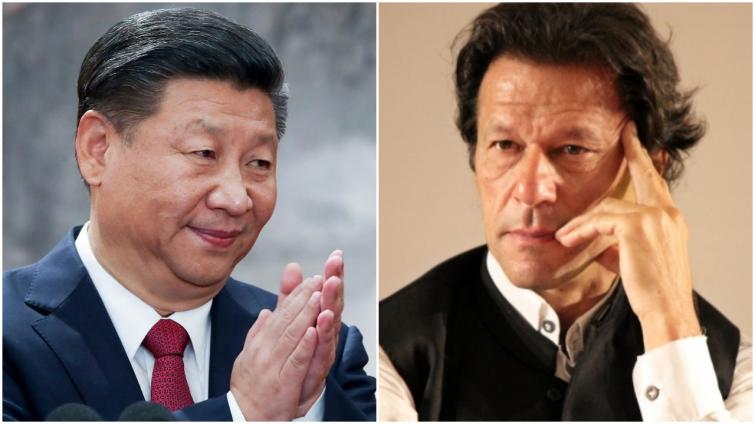 Taliban
Taliban 'China-Pakistan may contradict in their stand on Taliban coming to power in Afghanistan'
Kabul: There seems to be a clear contrasting belief between China and Pakistan on whether the Taliban should come to power in Afghanistan, an opinion piece published in a top Kabul-based news agency claimed.
China and Pakistan are an all-weather ally.
"While the contents of the trilateral joint statement issued in July 2020 (as in the case of previous ones), such as trilateral cooperation on security, peace, economy etc, are pretty standard, the implementation level is where this (essentially) China-led grouping's prospects will face its real test," the piece in Pajhwok Afghan News said.
"For instance, Chinese and Pakistani interests do overlap but the methods each opt to achieve the same, and its effects, do not. For instance, China's primary concern regarding terrorism in Afghanistan pertains to security of the restive Xinjiang Province. Not only does Xinjiang share a short 96-km border with Afghanistan along the latter's mountainous Badakshan province, it is also home to China's Uighur minority community who practice the Islamic faith," read the opinion piece.
"Security of Xinjiang province is directly relevant for China's 'March West' strategy involving BRI and related projects in Central Asian Republics (CAR). In this regard, countering jihadi terrorism is a key priority for Beijing," it said.
The opinion piece said in the context of the US-backed talks with the Taliban, China is concerned about jihadi groups such as the Taliban, coming to power in Afghanistan, whereas Pakistan's objective is to install a Taliban government that will be remotely controlled from Pakistan.
The Taliban has not been anti-China so far, read the opinion piece.
"In fact, Beijing has maintained direct communication channels with the group since the 1990s when the group was in power in Afghanistan, and Beijing has hosted the group for talks on more than one occasion," it said.
"But China does not possess leverage over the Taliban, especially not direct, and it is Pakistan that holds such leverage. Thus, a Taliban government in Kabul would essentially mean a fundamentalist Islamist theocracy in control of a strategic territory, with Beijing having limited control over developments," it said.
"Pakistan views installing such a government in Afghanistan as the only way to ensure its own security along its Western frontiers, and therefore, it is unlikely to roll back its attempts," the opinion piece said about Pakistan's interest in Afghanistan.
The Afghan government's team intends to put an end to the longstanding war and violence in the country and ensure lasting peace via the ongoing peace talks with the Taliban in the Qatari capital of Doha, Afghan presidential spokesman Sediq Sediqqi said on Monday, reports Sputnik.
The landmark intra-Afghan peace talks started on Saturday after both sides successfully completed a long-awaited prisoner exchange arrangement. Earlier on Monday, Ahmad Nader Naderi, a member of the government’s negotiating team, said that the participants had reached some progress during the Sunday contact group session, as they discussed schedules of upcoming meetings and relevant issues.
Washington and the Taliban agreed on a peace deal in Feb this year, with this agreement intending to pave the way for the immediate commencement of intra-Afghan talks.
However, this dialogue was delayed multiple times as both the government in Kabul and the insurgent group disagreed over the prisoner exchange process.
Support Our Journalism
We cannot do without you.. your contribution supports unbiased journalism
IBNS is not driven by any ism- not wokeism, not racism, not skewed secularism, not hyper right-wing or left liberal ideals, nor by any hardline religious beliefs or hyper nationalism. We want to serve you good old objective news, as they are. We do not judge or preach. We let people decide for themselves. We only try to present factual and well-sourced news.







